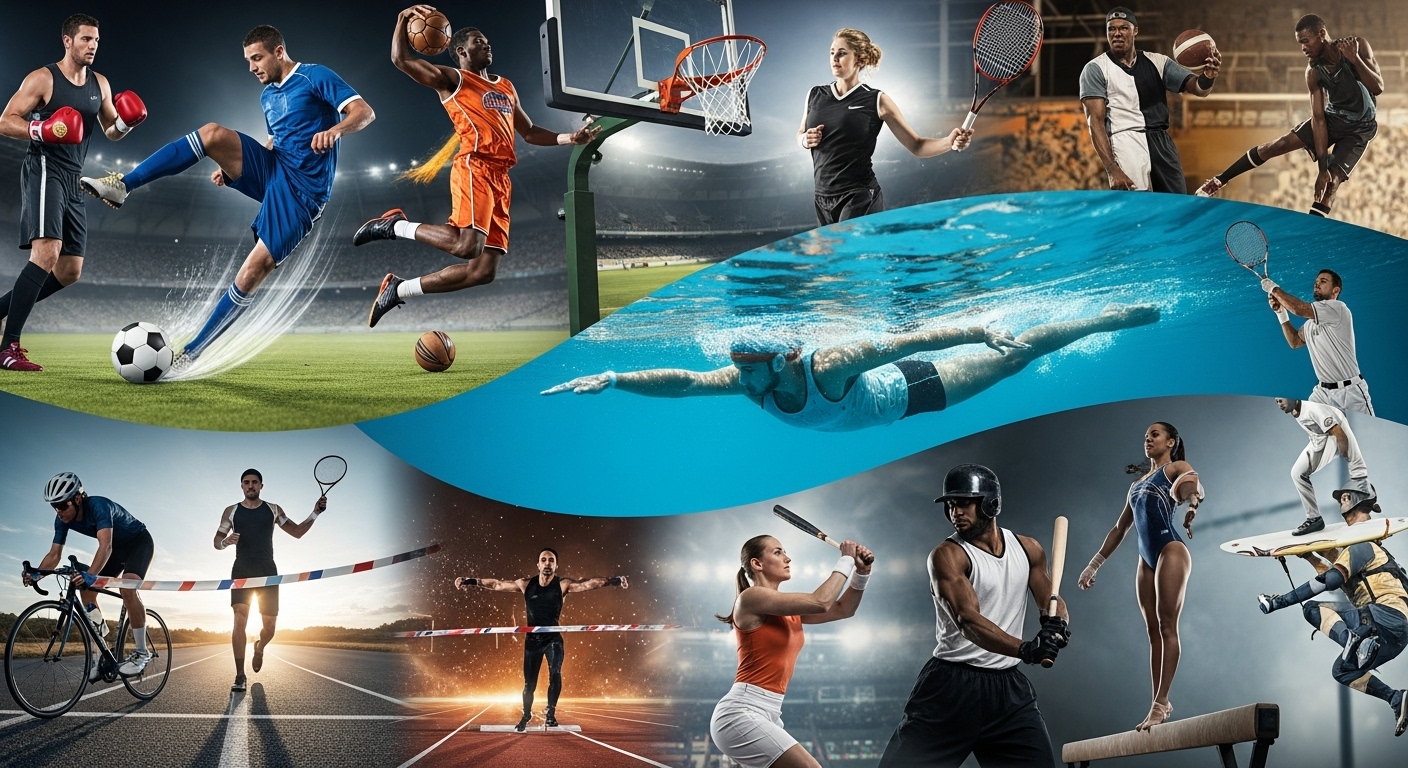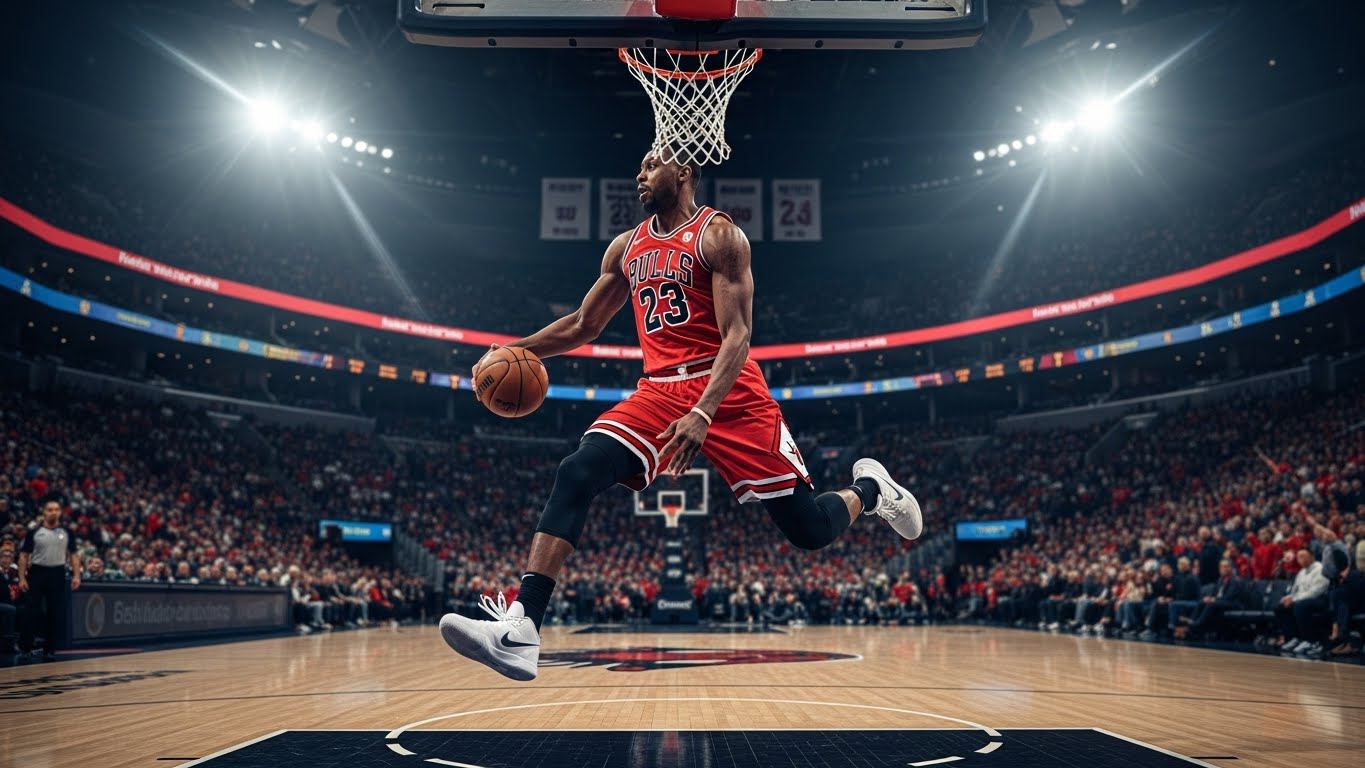Introduction: The Power of Sports in Our Lives
Sports are more than just games played for entertainment or competition. They have the unique ability to shape individuals and communities, offering life lessons, building character, and bringing people together. Whether played on a field, in a gym, or through a screen in esports, sports play a critical role in shaping both personal growth and society at large. In this blog, we explore how sports influence us beyond the physical realm, touching on personal development, social impact, and the broader implications for our world.
Sports and Personal Growth: Developing Skills Beyond the Field
The physical benefits of sports are obvious — improved fitness, coordination, and endurance. However, the mental and emotional growth that comes from engaging in sports is just as significant. Participating in sports teaches essential life skills that go far beyond winning or losing.
1. Discipline and Time Management
One of the most important lessons sports impart is discipline. Athletes must adhere to strict training schedules, follow rules, and work toward set goals. These skills translate well into everyday life. Whether it’s meeting deadlines at work or managing personal responsibilities, the discipline learned through sports helps individuals excel in various aspects of their lives.
Time management is another skill honed in the sports world. Balancing practice, matches, study or work commitments, and personal time requires organization. Athletes quickly learn how to prioritize and manage time efficiently to ensure they can give their best both on and off the field.
2. Teamwork and Communication
Sports often require collaboration with others, whether it’s a football team, a basketball squad, or a relay race. Learning to work effectively in a team environment is invaluable in personal and professional life. In sports, communication is key — athletes need to coordinate, give feedback, and offer support to their teammates. These skills translate into stronger relationships and better teamwork in the workplace or at home.
3. Resilience and Mental Toughness
No one likes to lose, but sports teach resilience — the ability to bounce back from setbacks and keep striving for success. Athletes often experience failure, but the best among them are those who persist, learn from their mistakes, and improve. The ability to maintain mental toughness, especially under pressure, is a crucial lesson from sports that helps individuals handle challenges in all aspects of life.
The Social Impact of Sports: Building Bridges Between Communities
Sports are not only a platform for individual growth, but they also have a profound impact on communities. From local youth leagues to global tournaments, sports can unite people from diverse backgrounds, fostering social change and inclusion.
1. Bringing People Together
At their core, sports have the power to unite. National pride swells when a country’s team wins a major tournament, but even more powerful is the sense of camaraderie that sports foster in local communities. From cheering for the local high school team to gathering in a pub for a professional game, sports create common ground for people who may have little in common otherwise. The shared experience of enjoying or competing in a game strengthens bonds and fosters a sense of belonging.
2. Promoting Diversity and Inclusion
Sports have long been a powerful tool for breaking down barriers and promoting inclusivity. Major movements within sports, such as the rise of women’s sports and the integration of athletes from various racial backgrounds, have helped challenge societal norms and push for equal rights. Figures like Jackie Robinson, Billie Jean King, and Michael Sam have all used their platforms to promote racial equality and LGBTQ+ rights, showing that sports can lead the charge in social change.
3. Encouraging Healthy Lifestyles
Participation in sports also promotes better health within communities. As awareness of the importance of physical activity grows, many sports programs have been designed to get people moving and improve overall public health. Community leagues, school-based athletic programs, and even charity sports events encourage people of all ages to engage in physical activity, which can reduce the risk of chronic diseases, improve mental health, and build stronger communities.
Sports as a Platform for Mental Health Awareness
While sports have traditionally focused on physical prowess, there is an increasing recognition of the importance of mental health in athletics. The pressures athletes face—whether in elite competition or casual play—can have a profound impact on mental well-being.
1. Breaking the Stigma
In recent years, the conversation about mental health in sports has shifted. High-profile athletes such as Naomi Osaka, Simone Biles, and Michael Phelps have bravely spoken about their struggles with anxiety, depression, and other mental health issues. By opening up, they’ve challenged the traditional “toughness” standard and shown that even the most elite athletes face mental health challenges. Their stories have helped normalize discussions about mental well-being, encouraging others to seek help when needed.
2. Building Resilience through Mental Health Awareness
Sports can also serve as a tool for mental health recovery and resilience. Many athletes use sports to cope with stress, anxiety, and personal challenges. Exercise, physical activity, and team involvement can help individuals manage their emotions and improve their mental health. In schools, sports programs are being recognized as vital for not only physical development but also emotional and social growth.
3. Promoting Self-Awareness and Self-Care
Athletes are increasingly learning to value self-care as part of their training. Mental health professionals, nutritionists, and coaches work together to ensure that an athlete’s emotional and physical needs are met. This holistic approach to training promotes better mental health and shows the importance of looking after one’s overall well-being. By sharing these practices with the public, sports have the potential to create a more mindful, self-aware generation.
The Future of Sports: Innovation, Technology, and New Frontiers
The world of sports is changing rapidly. New technologies, innovations, and evolving cultural norms are transforming how we play, watch, and experience sports. The future is undoubtedly exciting, and these changes will continue to shape both the athletic experience and societal impact of sports.
1. The Role of Technology in Sports
Advancements in technology have already made significant changes to sports. Virtual reality (VR), augmented reality (AR), and wearables are enhancing both the fan experience and athlete performance. VR allows fans to experience events from new perspectives, while wearables help athletes optimize their training. In the future, we may see even more personalized and immersive fan experiences, with interactive apps and real-time data enhancing how we engage with games.
2. Gender Equality and Inclusivity in Sports
The fight for gender equality in sports is far from over, but there has been tremendous progress. Women’s sports leagues and competitions have gained increasing visibility, and there’s a growing call for equal pay and recognition for female athletes. As society continues to push for inclusivity, sports are likely to become even more diverse, providing opportunities for all genders, races, and abilities to participate and excel.
3. The Rise of Esports and New Athletic Forms
Esports is rapidly becoming a dominant force in the sports world. Competitive gaming is drawing massive audiences, offering a different kind of athleticism, one based on cognitive skills, strategy, and teamwork. As digital gaming platforms improve, esports will likely grow in influence, perhaps even challenging traditional sports for global attention.
Conclusion: A World Shaped by Sports
Sports are more than just entertainment; they are an essential part of our social fabric, offering opportunities for personal growth, building community connections, and sparking social change. As technology, inclusivity, and mental health awareness continue to shape the sports world, the future of sports is one of innovation and greater unity. Whether you’re an athlete or a fan, the impact of sports reaches far beyond the field, affecting lives in profound and lasting ways. Embrace the lessons, the camaraderie, and the passion that sports bring, and you’ll see how deeply they influence the world we live in.



